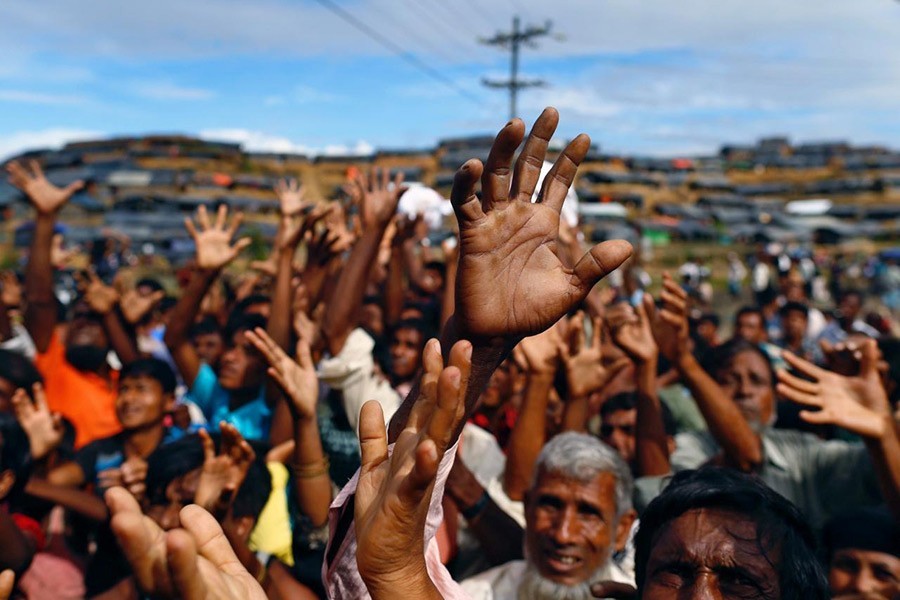It is regrettable to note that there is no sign of any progress in negotiations over repatriation of the Rohingya ethnic minority of Myanmar from Bangladesh who were subjected to ruthless expulsions by Myanmar armed forces in 2017.
Bangladesh signed a bilateral agreement with Myanmar on 30 October 2017 and on 30 October of 2018 without involving UN HCR for repatriation of the Rohingya. The Prime Minister of Bangladesh also has spoken about the Rohingya at 76th session of the General Assembly of the United Nations wherein she mentioned the ruthless ethnic cleansing against the Rohingya evicted from the Rakhine State of Myanmar.
The United Nations (UN)-sponsored investigation in 2018 recommended the prosecution of Myanmar top military commanders on charges of genocide, war crimes against humanity for the violence against the Rohingya. There seems to be no solution to the repatriation problem although Bangladesh has been maintaining cordial relations with both China and India, apart from Japan. These countries have been maintaining good relations with the Tatmadaw of Myanmar. Till now these countries have never asserted pressure on the Tatmadaw. It is noticeable that these countries remained absent when the General assembly of the United Nations issued a warning on June 8 of 2021 to stop the flow of arms to Myanmar and urged the military to show respect to the elected representatives and release all political detainees.
In total 119 members of the General Assembly of the United Nations remained absent including India, China and Russia while ASEAN majority members supported the resolution. It is interesting to note that Myanmar is the recipient of more than 80 per cent of arms and ammunition from India, China and Russia. Clearly, a non-binding resolution will have zero effect on Myanmar.
There seems to be an urgency that restrictions were imposed on suppliers of precious stones since Myanmar is the largest producer of precious stones like jade, rubies. In fact, Myanmar is producing 90 per cent of the largest precious jades and China is the major buyer of precious stones. According to one report, precious stone sales at the Myanmar gems emporium stands at $ 6.8 million this year alone. In fact, Myanmar is lucky to have natural resources which include petroleum, gold, copper, limestone, tin and natural gas. As a matter of fact, Myanmar is rich in natural resources. Therefore, both the United States of America and the United Kingdom should impose restrictions on the sale of precious stones to the effect that no cash proceed from sale will go to members of the Tatmadaw.
It is disturbing to see the role of India and China in Myanmar while Bangladesh has been maintaining good bilateral relations with both the countries. It seems to be a failure of diplomacy on the part of Bangladesh, to say the least, and convince these two friendly countries to exert pressure on and persuade Myanmar to take back the ethnic Rohingya.
The writer is a retired diplomat from Bangladesh.


